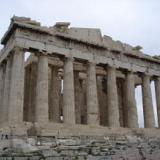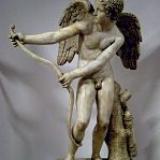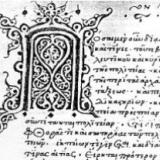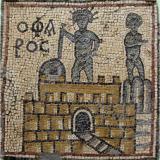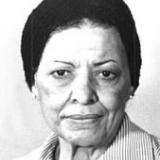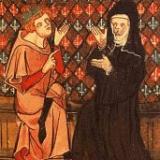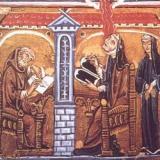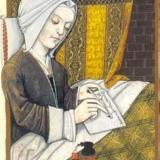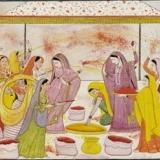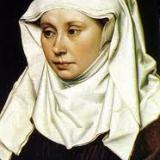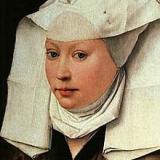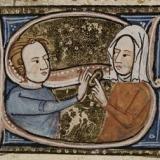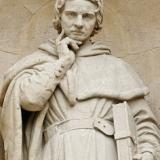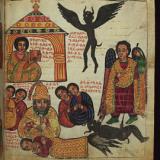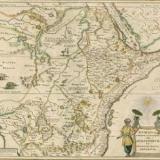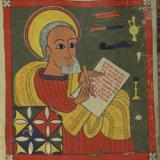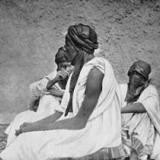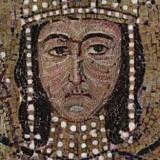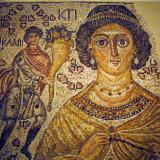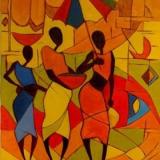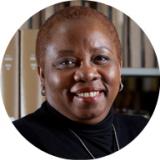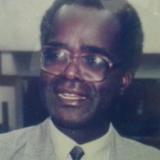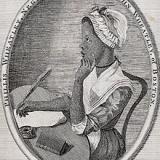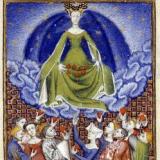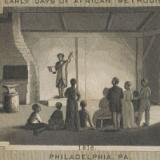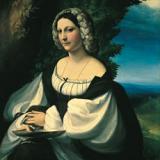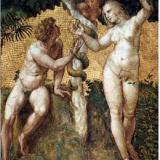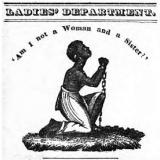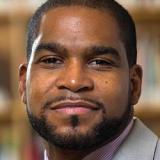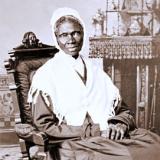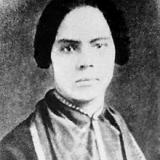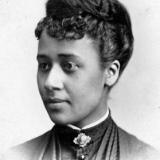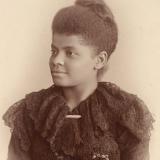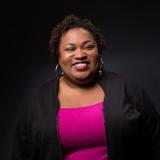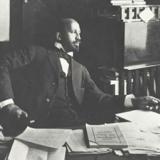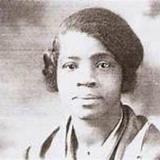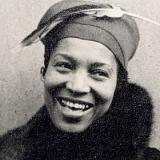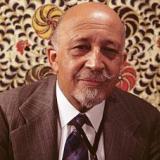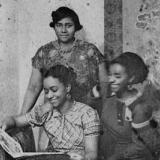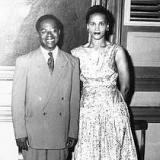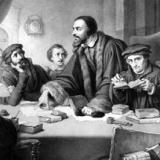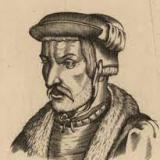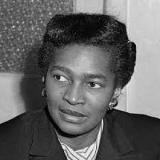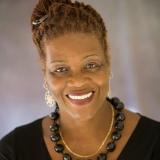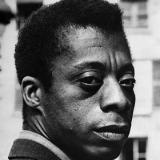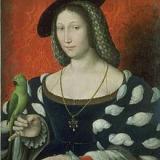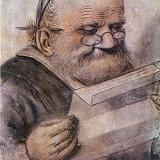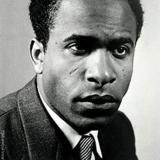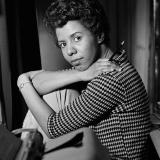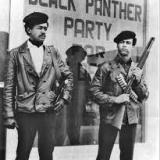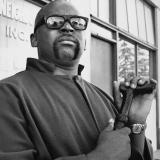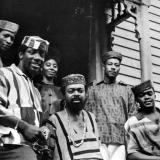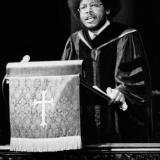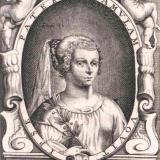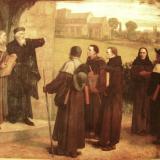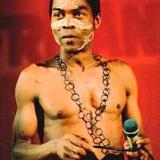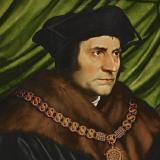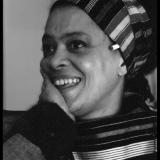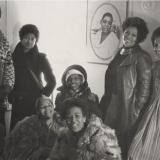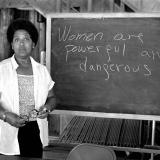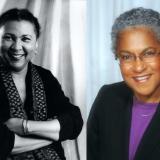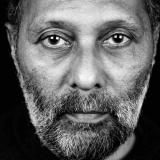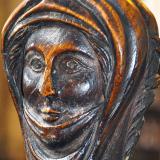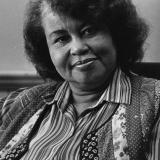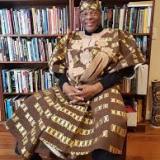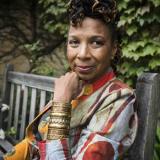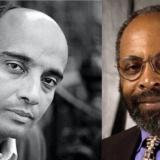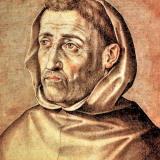Women and Gender
Posted on
In his masterpiece the Republic, Plato describes the ideal city and draws a parallel between this city and the just soul, with the three classes of the city mirroring the three parts of the soul. Peter discusses this parallel and the historical context that may have influenced Plato's political thought.
Posted on
In this episode, Peter discusses Plato’s erotic dialogues, the Lysis, the Phaedrus and the Symposium, and talks about the relationship between love, friendship and philosophy in Plato’s thought.
Posted on
Peter looks at the ideal arrangement of the state in Aristotle’s Politics, his critique of Plato’s Republic and his views on slavery.
Posted on
Neoplatonism had a long-standing association with traditional Greek religion. How did philosophers respond when Christians gained ascendancy?
Posted on
Fatema Mernissi and others challenge the long-standing (but not complete) exclusion of women from the intellectual traditions of Islam.
Posted on
Peter Abelard and Heloise prove themselves to be fascinating thinkers as well as star-crossed lovers.
Posted on
The life, visions, political intrigues and scientific interests of Hildegard of Bingen.
Posted on
Two Beguine authors, Hadewijch and Mechthild of Magdeburg, deploy the tropes of courtly love in vernacular writings about their mystical experiences.
Posted on
Women philosophers and ideas about women in Buddhism, the Upanisads, and the Mahabharata.
Posted on
Marguerite Porete is put to death for her exploration of the love of God, The Mirror of Simple Souls.
Posted on
Julian of Norwich’s Shewings and the Cloud of Unknowing lay out challenging paths to knowledge of, and union with, God.
Posted on
Medieval attitudes towards homosexuality, sex and chastity, and the status of women. Authors discussed include Aquinas, Catherine of Siena, and Chaucer.
Posted on
Peter is joined by Isabel Davis to discuss marriage, sex and chastity in Chaucer, focusing on the Wife of Bath's speech.
Posted on
Jean Gerson’s role in the political disputes of his day, the spread of lay devotion and affective mysticism, and the debate over the Romance of the Rose initiated by Christine de Pizan.
Posted on
Translations of religious and philosophical texts into Ge’ez, a national epic called the Kebra Nagast, and other developments in the story of philosophy in Ethiopia.
Posted on
The 17th century Ethiopian rationalist Zera Yacob, hailed as the first modern Africana philosopher.
Posted on
Walda Heywat’s reaction to the thought of his teacher Zera Yacob, and the dispute over the authenticity of these two Ethiopian philosophers.
Posted on
Uthman Dan Fodio and his family were scholars, poets, and warriors whose jihad in 19th century Nigeria created the Sokoto Caliphate.
Posted on
Princess Anna Komnene makes good use of her political retirement by writing her Alexiad and gathering a circle of scholars to write commentaries on Aristotle.
Posted on
The role of women in Byzantine society and the complex attitudes surrounding eunuchs: did they make up a “third gender”?
Posted on
What archeology, ethnography, and philosophical interpretation tell us about the diverse and often ambiguous roles of men and women in traditional African societies.
Posted on
An interview with Nkiru Nzegwu on matriarchy, sexuality, and gender fluidity in Africa (with a quick chat at the end about her work on African art).
Posted on
Henry Odera Oruka’s new method for exploring philosophy in Africa, based on interviews with wise individuals.
Posted on
Phillis Wheatley astonishes colonial Americans with her exquisite and precocious poetry and reflects on the liberating power of the imagination.
Posted on
Christine de Pizan's political philosophy, epistemology, and the refutation of misogyny in her "City of Ladies".
Posted on
Building black institutions in early American history, with Prince Hall and the Masons in Boston, and Richard Allen and the Methodists in Philadelphia.
Posted on
Cassandra Fedele, Isotta Nogarola, and Laura Cereta seek fame and glory through eloquence and learning.
Posted on
Refutation of misogyny in Moderata Fonte and Lucrezia Marinella.
Posted on
Maria W. Stewart’s public addresses bring the concerns of African American women into the struggle against racial prejudice.
Posted on
Ficino describes a “Platonic” love purified of sexuality, prompting a debate carried on by Pico della Mirandola, Pietro Bembo, and Tullia d’Aragona.
Posted on
Melvin Rogers joins us to discuss David Walker, Maria Stewart, and Hosea Easton.
Posted on
The moral crusades of Sojourner Truth and Frances Harper, activists against racial and gender oppression.
Posted on
Mary Ann Shadd and Samuel Ringgold Ward reflect on what Canada can offer African Americans, differing on the problem of racism.
Posted on
Anna Julia Cooper’s A Voice from the South, an unprecedented contribution to black feminist theory.
Posted on
Ida B. Wells, her tireless crusade against lynching, and her analysis of the underlying purpose of racial violence
Posted on
Brittney Cooper on activists connected to the National Association of Colored Women, including Fannie Barrier Williams, Mary Church Terrell, and Ida B. Wells.
Posted on
Co-host Chike joins Peter to look back at series two and ahead to series three.
Posted on
By exploring the work and activities of W.E.B. Du Bois around the turn of the twentieth century, we introduce some of the themes of our coverage of that century.
Posted on
Vanessa Wills speaks to us about Marx and his Africana legacy, with a special focus on black women Marxists.
Posted on
Marcus Garvey’s two wives, Amy Ashwood Garvey and Amy Jacques Garvey (pictured), establish themselves as activists in their own right and provide feminist voices within the Pan-African movement.
Posted on
Zora Neale Hurston’s interest in Africana folklore feeds into her great novel Their Eyes Were Watching God.
Posted on
Du Bois moves to the left, and revisits and refines older positions during the latter half of his very long life.
Posted on
Our first look at the emergence of the Negritude movement in Paris in the 1930s, with a focus on the early leadership of the Nardal sisters and Leon Damas.
Posted on
Negritude thinkers Aimé and Suzanne Césaire embrace surrealism and reflect on the relationships between poetry, knowledge, and identity.
Posted on
In a surprise twist, some Protestant thinkers embrace the methods of scholasticism, and even find something to admire in the work of Catholic authors like Aquinas.
Posted on
Was Heinrich Cornelius Agrippa a dark magician, a pious skeptic, or both?
Posted on
Claudia Jones argues that Communism provides the remedy for racism and imperialism.
Posted on
Interview guest Carole Boyce Davies joins us to talk about the radical ideas of Claudia Jones.
Posted on
In The Fire Next Time and other writings, the essayist and novelist James Baldwin seeks to dispel the illusions surrounding racial and sexual difference.
Posted on
A Renaissance queen supports philosophical humanism and produces literary works on spirituality, love, and the soul.
Posted on
In his outrageous novel about the giants Pantagruel and Gargantua, Rabelais engages with scholasticism, humanism, medicine, the reformation, and the querelle des femmes.
Posted on
Frantz Fanon combines psychoanalysis and existential phenomenology to diagnose neuroses deriving from the colonial condition.
Posted on
The author of the famous play, A Raisin in the Sun, explores questions of violence, sexuality, and more during her too brief life.
Posted on
The philosophical underpinnings of a “vanguard of revolution” led by Huey P. Newton, Bobby Seale, and Eldridge Cleaver: the Black Panther Party.
Posted on
The Pan-Africanist philosopher Maulana Karenga defends the importance of cultural revolution and invents the holiday Kwanzaa.
Posted on
African American literature of the late 1960s reflects the Black Power movement, in the works of such authors as Amiri Baraka, Nikki Giovanni, Haki Madhubuti, Larry Neal, and Sonia Sanchez.
Posted on
After Albert Cleage and James Cone propose a liberatory interpretation of Christianity, William R. Jones wonders whether God is a white racist. We also follow Black Theology among “Womanist” authors and in South Africa.
Posted on
Marie le Jars de Gourney, the “adoptive daughter” of Montaigne, lays claim to his legacy and argues for the equality of the sexes.
Posted on
Sun Ra and Parliament-Funkadelic return to claim the pyramids, and Octavia Butler uses science fiction to confront the brutal past of slavery.
Thanks to Stephan Terre for the creation of the futuristic intro music!
Posted on
John Knox polemicizes against idolaters and female rulers, while the humanist George Buchanan argues more calmly for equally radical political conclusions.
Posted on
The political and musical revolution of Fela Kuti’s Afrobeat, the social critique of his cousin, the playwright Wole Soyinka, and the extraordinary career of Fela's mother Funmilayo.
Posted on
What is the message of the famous, but elusive, work Utopia, and how can it be squared with the life of its author?
Posted on
Toni Cade Bambara, the Combahee River Collective, the Brixton Black Women's Group, and Awa Thiam critique white feminist and black nationalist failures to recognize the unique struggle of the black woman.
Posted on
Toni Morrison, Alice Walker, and Maya Angelou explore the themes of black feminism (or “womanism”) in their fiction.
Warning: this episode contains discussion of sexual violence and suicide.
Posted on
In poetry and prose, especially her collection Sister Outsider, Audre Lorde explores ideas of difference, eroticism, and feminist theory.
Posted on
We bring the story of black feminism up to the turn of the century with the incisive works of bell hooks and Patricia Hill Collins.
Posted on
How Macbeth reflects the anxieties and explanations surrounding witchcraft and witch-hunting in early modern Europe.
Posted on
Stuart Hall pioneers “cultural studies,” offering tools for analysis of films, television, fiction and music that were put to use by followers like Paul Gilroy and Hazel Carby.
Thanks to Glenn Adamson for his feedback on this episode!
Posted on
How women’s writing in England changed from the early fifteenth century, the time of Margery Kempe, to the late sixteenth century, the time of Anne Lock.
Posted on
Sylvia Wynter offers a bold and provocative assessment of the role of the humanities in understanding humankind.
Posted on
What inspired Asante's philosophy of Afrocentricity, and its relationship to religion, nationalism, and feminism.
Posted on
A movement of legal scholars diagnoses the limitations of merely “formal” measures against discrimination, a point they connect to issues like affirmative action, democratic process, and intersectionality.
Posted on
The key events and figures in philosophy as an academic discipline, in both Africa and the diaspora, from the 1970s to the 1990s.
Posted on
Fray Luis de Leon, Antonio Nebrija, Beatriz Galindo and other scholars bring the Renaissance to Spain.

